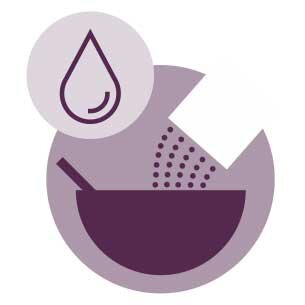 Image 1 of
Image 1 of


Cassia Plant-Based Hair Treatment
Ayluna’s Plant-Based Cassia Hair Treatment provides intensive care for hair and surrounds every single strand with a protective glaze of organic plant extracts. It makes fine, long or damaged hair shiny and adds volume. Cassia, which is also called neutral Henna, is a traditional natural hair care product. The plant-based hair treatment does not dye but might leave a slight tint on blonde or grey hair.
Ayluna’s Plant-Based Cassia Hair Treatment provides intensive care for hair and surrounds every single strand with a protective glaze of organic plant extracts. It makes fine, long or damaged hair shiny and adds volume. Cassia, which is also called neutral Henna, is a traditional natural hair care product. The plant-based hair treatment does not dye but might leave a slight tint on blonde or grey hair.
Ayluna’s Plant-Based Cassia Hair Treatment provides intensive care for hair and surrounds every single strand with a protective glaze of organic plant extracts. It makes fine, long or damaged hair shiny and adds volume. Cassia, which is also called neutral Henna, is a traditional natural hair care product. The plant-based hair treatment does not dye but might leave a slight tint on blonde or grey hair.
INCI: Cassia Auriculata Leaf Powder (Cassia)*, Emblica Officinalis Fruit Powder (Amla)*, Lawsonia Inermis Leaf Powder (Henna)*, Indigofera Tinctoria Leaf Powder (Indigofera)*, Rubia Cardifolia Root Powder (Madder)*, Matricaria Chamomilla Flower Powder (Chamomile)*, Bacopa Monnieri Leaf Powder (Brahmi)*, Trigonella Foenum-Graecum Seed Powder (Fenugreek)*
* = from organic origin
Cassia, also called colourless henna, is a traditional natural hair product that creates shine and protection for hair. Cassia is suitable for all natural hair colours.
First of all: dye a test strand so that you can be sure that the result of your hair dyeing is what you want to have, first of all dye a test strand. Ideally, dye a test strand at the lightest part of the hair or the part with the most greyness. Mix a tablespoon of dye according to the thickness and length of the strand and apply as described in the following. Does it look good? Then let’s go...

Step 1 — Prepare the hair
In order for the plant-based hair dye to attach ideally to the hair, wash your hair with a natural cosmetic shampoo. If you nearly always use conventional hair care products, the use of our Ayluna Ghassoul products is recommended so that eventual deposits are removed and the colour can attach optimally. Do not use any care products such as conditioner before dyeing.

Step 2 — Mixing
Place the Ayluna plant-based hair dye in a bowl. Slowly mix with hot water to a viscous cream (you will need approx. 300 ml for a package). The dye mixture should be creamy, but not drip. Protect your clothes with a hairdressing cape or an old towel.

Step 3 — Application
When the dye has cooled down to a temperature that is comfortable for you, let’s get started. Using a paint brush, apply Ayluna plant-based hair dye strand by strand and evenly onto all the hair. Always start at the hairline. You can also »knead« the dye in, in order to cover the whole area. Done? Now put on the covering cap and cover it with a »towel turban«. Remove any dye residues from face, ears, and neck.

Step 4 — Let it soak
The optimal process time for the Ayluna plant-based hair dye is between 15 minutes and two hours. By dyeing the test strand you already know how much time you need for your hair. The general rule applies: very light and/or damaged hair needs a shorter time, whereas thick, dark hair and a healthy hair structure probably need more time. Make sure that the plant-based hair dye does not dry during process time.

Step 5 — Rinsing
Now rinse the plant-based hair dye out completely with plenty of warm water. While doing so, please do not use shampoo or any care products. Within 48 hours, the plant-based hair dye can develop its fullest potential. A possible tinge of green after dyeing will disappear within this time.
